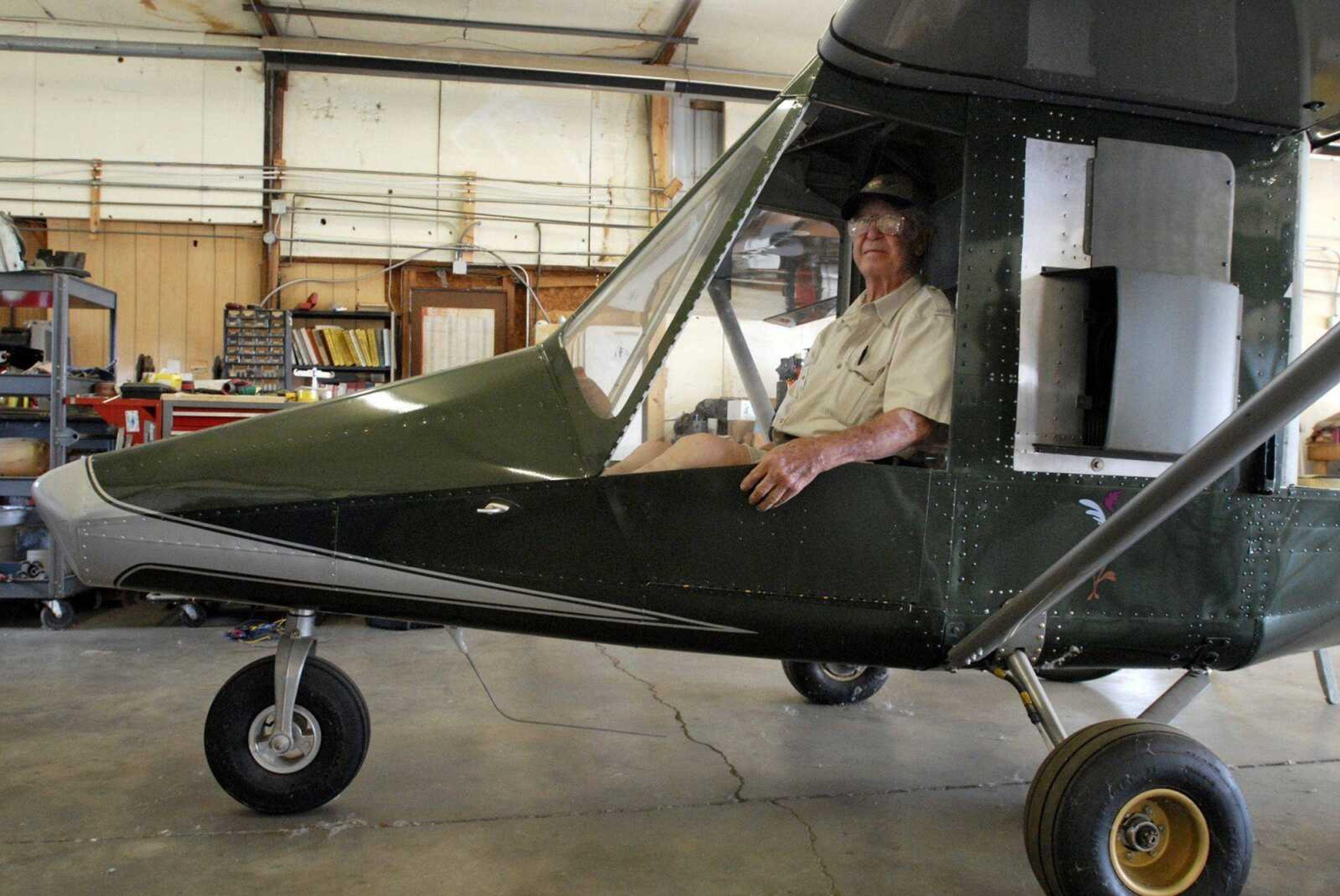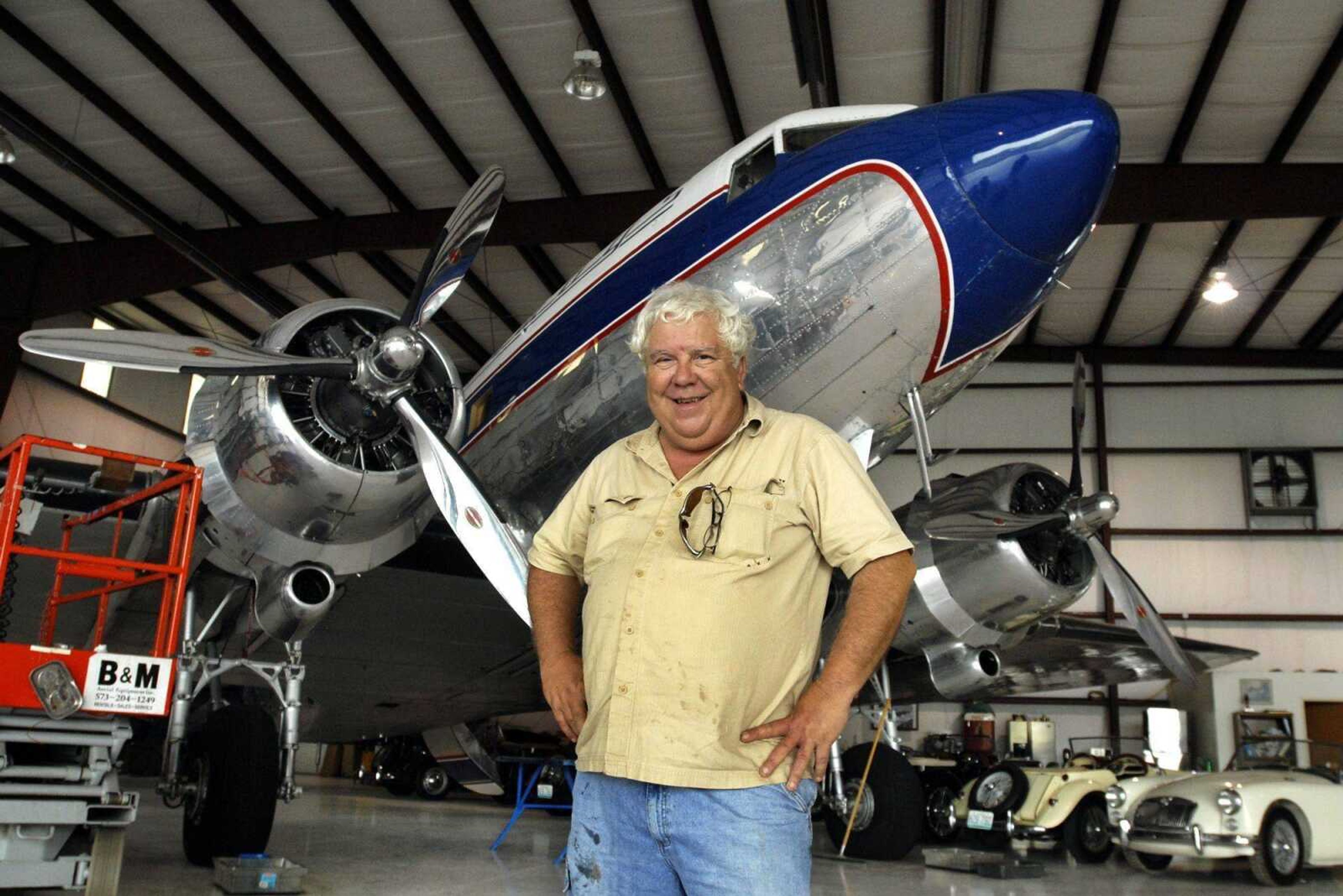Cape's aviation history, Part 3: The bond of pilots
No matter the size of the planes they fly, pilots share more than just the sky. There is a bond, a brotherhood, a sense of camaraderie among members of the Cape Girardeau Pilots Club. "We think differently. We all know we're doing something not a lot of people do," said John Farquhar of Cape Girardeau. Farquhar, known as "Papa John," flies a small plane he built from scratch nicknamed "PJ1000."...
No matter the size of the planes they fly, pilots share more than just the sky. There is a bond, a brotherhood, a sense of camaraderie among members of the Cape Girardeau Pilots Club.
"We think differently. We all know we're doing something not a lot of people do," said John Farquhar of Cape Girardeau. Farquhar, known as "Papa John," flies a small plane he built from scratch nicknamed "PJ1000."
The personal mobility an airplane offers is what motivates many pilots to learn how to fly.
"You've got a lot of freedom up there," Farquhar said. "I like to fly low and slow so you can see the countryside."
J.T. Seesing, who operated Cape Central Airways at the Cape Girardeau Regional Airport from 1950 to 1976, also loved the freedom of flying.

"You didn't have to wait till they got the road built, you just had to have a runway and you could go anywhere," said Seesing, who was a charter member of the Cape Girardeau Pilots Club.
Local pilot Jack Rickard said he learned to fly out of frustration with commercial airlines. He got his pilot's license while living in Denver and making frequent trips back to his hometown of Cape Girardeau to see his father, who was ill.
"On my airline, we don't search you, you don't have to take your shoes off, and you can even smoke," said Rickard, who has since moved to Cape Girardeau and built an 1,800-square-foot hangar at the airport in 2001.
Rickard flies a restored Douglas DC-3 that was used as World War II Gen. Henry "Hap" Arnold's personal transport plane. It seats 14 people in style from its thick padded seats to its silver bud vases mounted to each window.
"This was the plane that established commercial airline service," Rickard said about the DC-3. "It was the original airliner."
Some pilots, like J.T. Seesing's son, Mark, who later served as airport manager, said he grew up flying.
Mark Seesing, along with his five siblings, often rode along with their father. Once an air traffic controller asked his father how many souls he had on board his four-seater plane and he said seven, to the controller's surprise.
Another pilot who learned to fly in Cape Girardeau at a young age was Dr. Gene McDonald of Jackson.
"I started out pumping gas at the airport one summer," said McDonald, who as a teenager worked at Cape Central Airways at the Cape Girardeau Regional Airport.
After having his pilot's license for 40 years, he still flies from there.
Some pilots took up flying as a hobby later in life. Jerry Clubb of Cape Girardeau learned to fly after he retired.
"It's an expensive hobby," he said. Aviation fuel is currently around $5 per gallon, he added. Gasoline is about half that price right now. Clubb is now flying a small one-seat ultralight that is powered by a small engine that runs on gasoline.
Local pilots describe the Cape Girardeau Regional Airport as a "top-notch" facility compared to others of its size.
"For a small airport, it's the finest in the state," Farquhar said.
Pilots agree that for the facility to thrive in the future, it will take more than they can give.
More airline-related industries are needed to keep the airport thriving, Clubb said.
mmillersemissourian.com
388-3632
Pertinent address:
860 Limbaugh Drive, Scott City, MO
Connect with the Southeast Missourian Newsroom:
For corrections to this story or other insights for the editor, click here. To submit a letter to the editor, click here. To learn about the Southeast Missourian’s AI Policy, click here.









